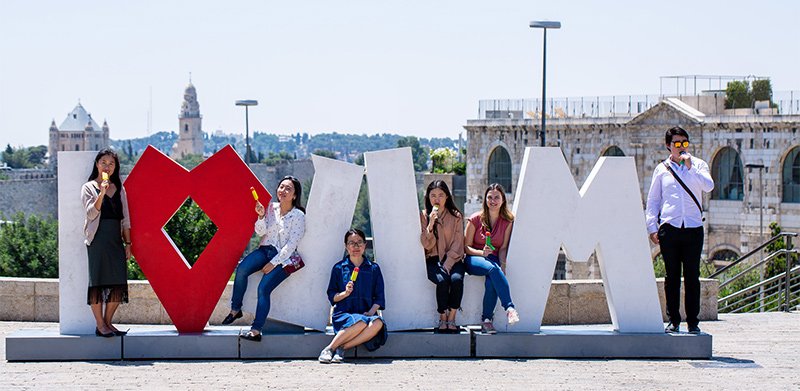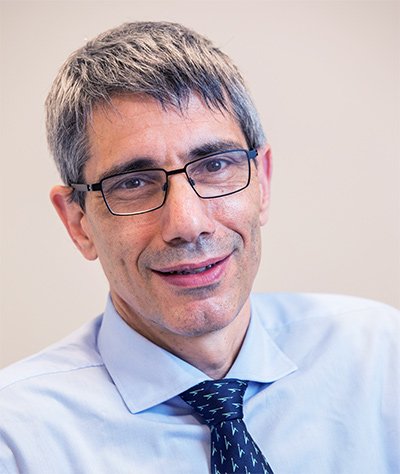Editor’s note: The Khaleej Times is published in Dubai, United Arab Emirates, and is the UAE’s longest-running English daily newspaper.


The success story of Israel’s academia makes it a magnet for scholars on sabbatical and knowledge-thirsty students of all ages
Universities in Israel run vibrant international schools, with a range of special courses for overseas visitors, and also offer to integrate foreign students into the main degree programmes they run. Courses span a gamut of topics, from humanities to the science and technology subjects that put Israel at the forefront of innovation.

“Our nation’s ability to take ambitious ideas and transform them into workable concepts that are benefiting society at large is a central part of Israel’s identity in recent decades,” says Professor Oron Shagrir, Vice-President for International Affairs at the Hebrew University of Jerusalem. “By attracting students from abroad to our university, we ensure that our proven model of national success can be appreciated far beyond our national borders.”
He is excited at the prospect of students from the UAE arriving. “There is no doubt that the Abraham Accords and this thriving relationship between Israel and the UAE presents the platform for enormous collaboration in areas of academia and research advancement,” he commented.
In a normal year, Hebrew University’s Rothberg International School hosts 2,000 students from over 90 nations, who fly in for short and long-term study programmes.
Many are drawn by the surroundings, as well as the education. “What makes Hebrew University special is our location in a city, country and region where academic studies have a relevance and purpose that we are able to appreciate each and every day,” said Shagrir.”
Israel’s technological innovation story has been a driving force for the success of one of Hebrew University’s most popular programmes, the International StartUp 360° MBA.
Other well-received subjects include Smart Cities and Urban Informatics, a two-semester, year-long MA programme equivalent to 32 credits.
Designed in response to the global demand for urban spaces that maximise technology for the benefit of daily life, commerce, the environment and much more, the programme teaches specific tools to equip a new generation of urban planners, policymakers and analysts. It capitalises on the joint strengths of the existing programme in Urban Planning at the Hebrew University and the GeoInformatics track in the Department of Geography.
Defined by ethnic and geographic diversity, the programme places a strong emphasis on the characteristics of Jerusalem as a model that can be applied for the benefit of developing metropolitan areas around the world.

An hour away from Jerusalem, in Tel Aviv, the main academic institution also buzzes with international visitors. The campus hosts over 3,000 international students every year, participating in 60 English-led academic programmes, and Prof. Milette Shamir, Vice-President for international affairs, believes that Israel’s new friendship with the UAE and others will expand this.
“From the moment the agreements were signed it was clear that, in addition to forming new academic connections and collaborations, we must also define the role of academia in building bridges between nations and cultures,” she said.
“The spirit of Tel Aviv University, which places great emphasis on innovation and entrepreneurship, as well as the city of Tel Aviv – an international hub of entrepreneurship, go very well with the spirit of universities in Bahrain and the UAE, especially in Dubai and Abu Dhabi, where entrepreneurship and innovation also predominate.”
Israel has a strong reputation for legal expertise, and one of Tel Aviv’s most prestigious programmes is the Parasol Foundation International LL.M., a rigorous law qualification. It includes a strong focus on challenges to law that stem from the processes of globalisation to specific courses on the Israeli legal and social systems and the ongoing complexities of the Middle East.
“We live in the non-stop city in a ‘Start-up Nation’ and have become a source of attraction for outstanding jurists from all over the world, thanks to our unique learning method and the exceptional specialisation tracks,” said the programme’s academic director Prof. Ronen Avraham.
Ben Gurion University has the most striking location of all Israel’s higher education institutions. Its main campus is in the desert city of Beersheba, in the country’s south. The institution is named after the first Israeli Prime Minister David Ben Gurion, who famously wanted to make the “desert bloom.”
Ben Gurion University is known as an out-of-the-box thinker among Israeli academics, and runs a range of special programmes that are open to its Israeli ad international students alike.
The latest is the world’s first academic e-commerce accelerator to train students to establish and operate an Amazon store. It started in November and the first session featured guest speaker Randi Zuckerberg, creator of Facebook Live and CEO of Zuckerberg Media.
In Israel’s north, the Technion-Israel Institute of Technology is often referred to as the hothouse of innovators. It has such a name for itself that the Chinese were keen to bring the brand to their shores, and in 2017 opened a Technion campus in the Guangdong province.
Many of Israel’s top inventors are graduates of the Technion’s mechanical engineering programme, which is open to international students. The broad-based course spans a variety of technological and engineering skills, and focuses heavily on ecological and financial influences in the market. It equips students with skills for a range of fields, including robotics, electro-optics, renewable energy, and designing automobiles, ships and aircraft.
As university officials prepare for an influx of visitors from the UAE, some students are doing the same.
Tel Aviv University student union leader Oleg Ben-Avi recently visited the University of Dubai to build connections with counterparts there. “At the beginning, the conversation was a bit guarded, but gradually they opened up, and I found people who are not very different from us,” he said.